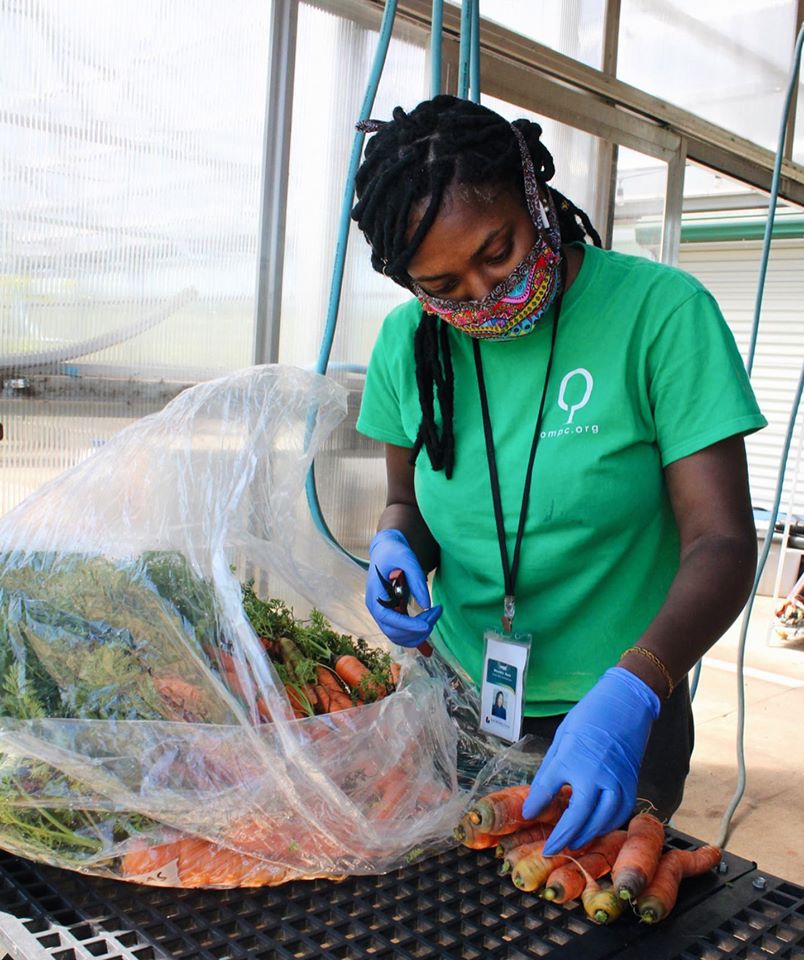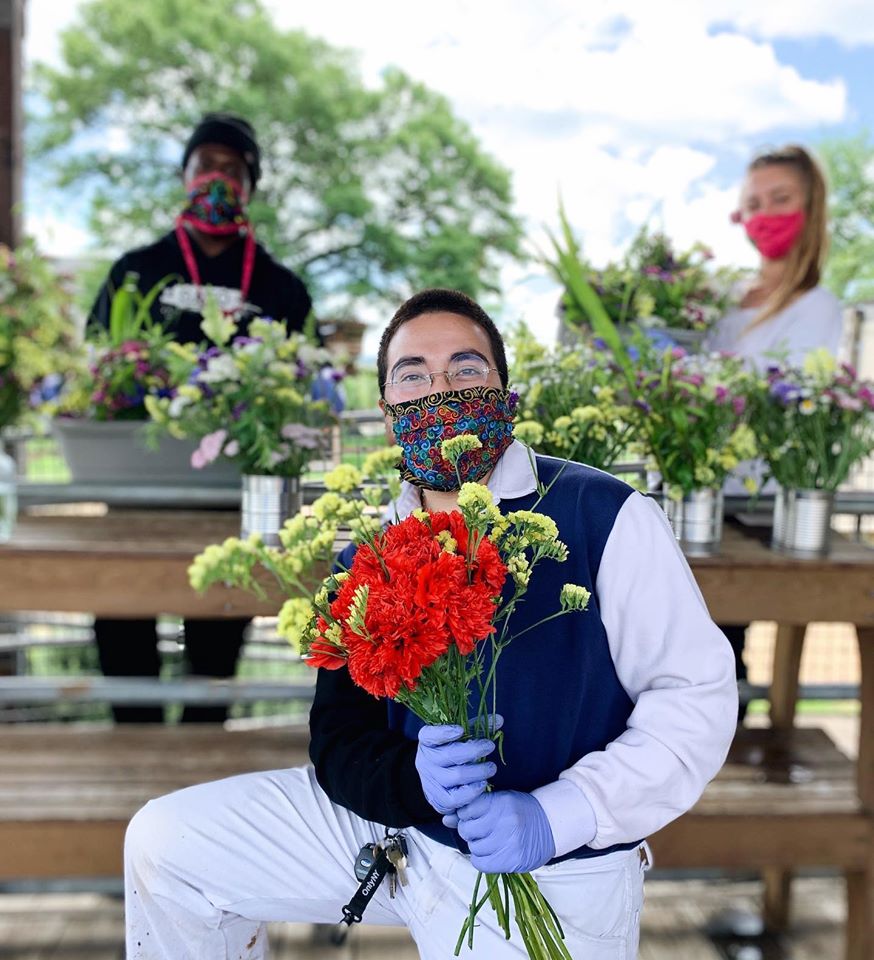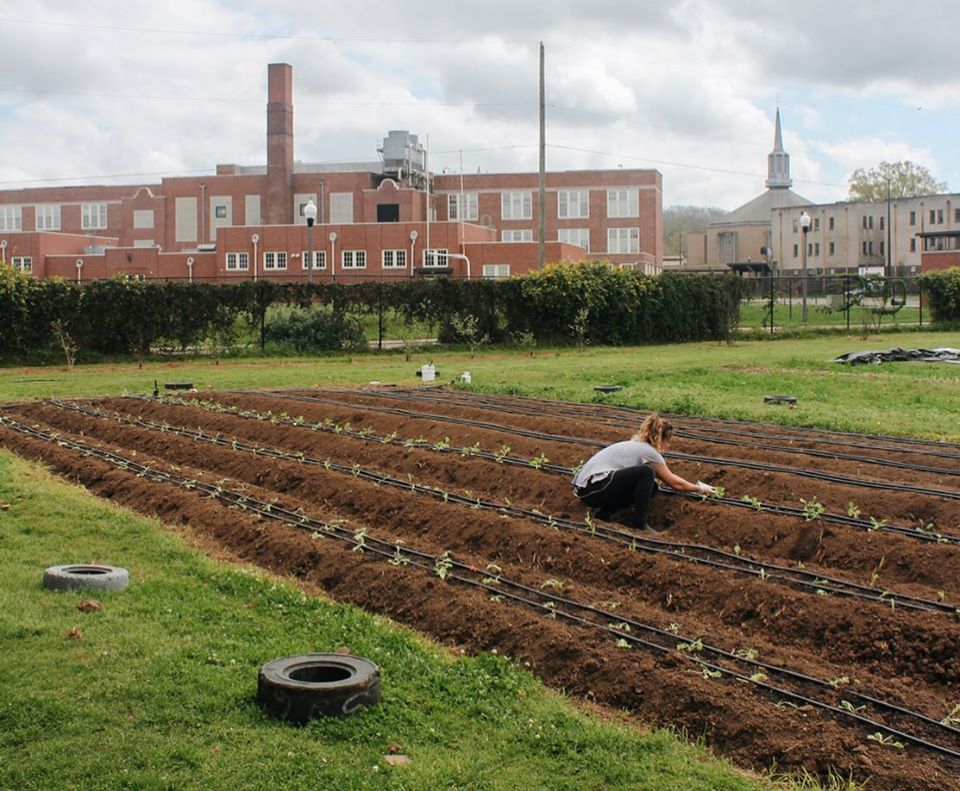Normally, this time of year, the Jones Valley Teaching Farm in Birmingham, Alabama, would be bustling with activity. Since 2007, the nonprofit has set up farms on local elementary, middle, and high school campuses, and worked with the administrators and teachers to incorporate food and farming into the curricula. In the spring, those students would be out tending plots of broccoli, radishes, beans, and lettuce, and learning lessons about agriculture through subjects as varied as math, biology, history, and literature. Then the coronavirus hit, and the schools closed.
“COVID-19 brought us to a screeching halt,” says executive director Amanda Storey says. “We had to take a pause and think: What can we do?” That pause didn’t last long—in fact, Jones Valley Teaching Farm might be even busier than before. First, the organization pivoted to using all of its farm plots to feed the wider Birmingham community. They have since donated more than five hundred pounds of produce to the Hispanic Interest Coalition of Alabama, as well as to faith-based organizations with pantries that distribute food directly to families.

Then, instead of curtailing seedling production as the group normally would in late spring, Jones Valley has continued to germinate seeds and to give the resulting seedlings to community gardens, such as the one in the Bush Hills neighborhood, which then divvy up the yield to their network of families in need. The farm also contributed fifty pounds of collards to a local restaurant at no cost, and employees are making bouquets for health-care workers to spread positivity.
But, as Storey says, “That’s just what we are doing this week. Next month, who knows. Our goal is to provide food to those who need it for as long as we can.” To that end, she and her team are planting familiar produce such as cucumbers, zucchini, and eggplant that will have a high yield, store easily, and require no appliances to prepare. “Now is not the time to be experimenting with a rare turnip. We want to get people food that will last, that they are comfortable preparing and eating.”
Even with this new mission, teaching still serves as the heart of the organization. The nonprofit is now publishing its curriculum online in downloadable lesson plans, available both to the usual students and to anyone else who wants to use them. “Being able to grow your own food and take care of yourself and your family is a skill that lasts forever,” Storey says. And an ability especially relevant now, in a time when so many have lost their jobs, and the pickings at grocery stores have been slim.
Jones Valley is also delivering plants to students who want to cultivate vegetables at their homes. “We recently dropped off a bunch of seedlings at one of our student’s houses, and he’s going to town planting in his backyard,” Storey says. Another student, who is self-isolating with her grandfather, has built a raised bed and is busy growing tomatoes, beans, and a lettuce mix in it. Storey hopes to get a program in place that distributes seedlings to even more students, possibly by setting up a table to give them away when students come to pick up the meals that the school is still providing.
This may not be a typical May for the Jones Valley Teaching Farm. But its dedication to its mission and its flexibility has enabled the team there to change things up and provide for the community. And best of all, they have prepared thousands of students to do the same.









